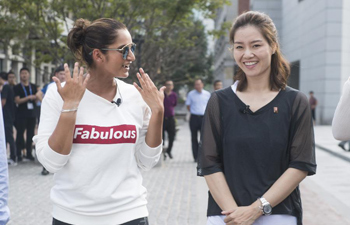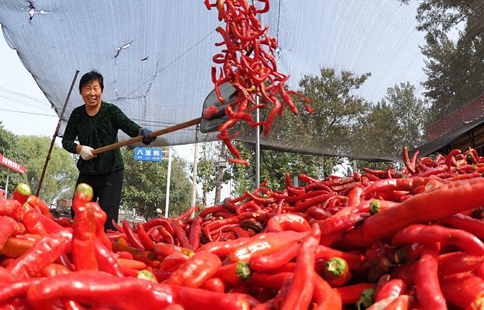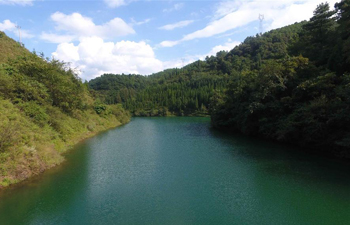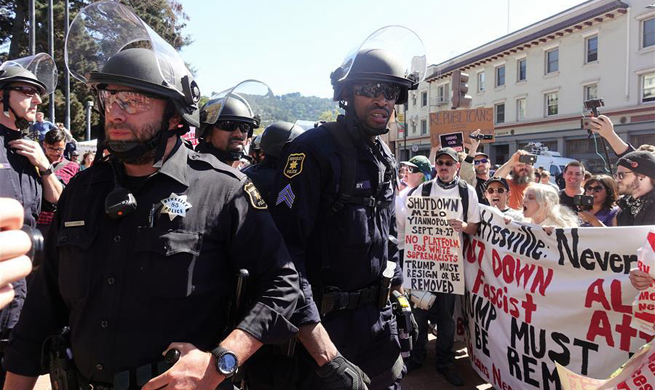BERLIN, Sept. 25 (Xinhua) -- Though German Chancellor Angela Merkel and her allies apparently won the parliamentary election Sunday despite a diminished number of votes, her road to form a new government for a record fourth time will not be a cakewalk.
According to the preliminary results released Monday morning, the coalition of Merkel's Christian Democratic Union (CDU) and its Bavarian sister party, the Christian Socialist Union (CSU), obtained 33 percent of the votes, shrunk from the 41 percent in 2013. However, it still heralded a fourth term for her, with the support of other parties.
Her main rival, the Social Democratic Party (SPD) of Martin Schulz, received a record low of 20.5 percent. The surprise came from the far-right party Alternative for Germany (AfD), which captured 12.6 percent, and the Free Democratic Party (FDP), which successfully re-entered the federal parliament, the Bundestag, after a four-year break with 10.7 percent.
Merkel is likely to remain chancellor. However, with the AfD entering parliament for the first time, the negotiations on a new coalition might be difficult.
Merkel said she had hoped for a better result, but the coalition had achieved its strategic objectives and had the mandate to form the government.
She rejected speculation about a possible minority government. "I do not see this ... we should achieve a stable government in Germany," Merkel told public broadcasters ARD and ZDF.
Germany will see a six-party parliament for the first time since the 1950s. On Friday, the parties will discuss the results of the election.
Both the liberal democrats of the FDP and the Greens expressed their willingness to enter into negotiations on a trilateral coalition, although with great divergences to overcome on issues such as energy and immigration policies.
FDP leader Christian Lindner wants to make his party agree to a coalition depending on the degree of consensus on political contents.
"We are not condemned to govern, but we are, of course, willing to take political responsibility," he told ARD and ZDF.
Greens candidate Katrin Goering-Eckardt also anticipated difficult talks, saying, "We will not be an easy partner."
In light of these difficulties, the CDU has appealed to the SPD not to refuse coalition talks.
Although a grand coalition of the CDU and SPD remains mathematically possible, SPD's Schulz, a chancellor candidate, rejected a renewal of the coalition.
"It is quite clear that the electoral mandate to us is to form the opposition," Schulz said.
After the crushing defeat at the election, he did not want to lead the SPD parliamentary party, stating his intention to remain party chairman.
All the other parties have previously expressed their unwillingness to enter into a coalition with the AfD, which received a very high level of voter support.
AfD support is especially widespread in the eastern German states.
The Central Council of Jews in Germany saw the country face the greatest democratic challenge since 1949. The Turkish community in Germany also expressed concern.
Merkel said her party wanted to win back AfD voters "by solving problems, by taking up their worries and also, partially, their fears, but above all, with good politics."
Schulz attacked the chancellor and attributed a "great responsibility" to her for the rise of the right-wing populists.
"This systematic refusal of political debate has created a vacuum that the AfD was able to fill," he said.
AfD's top candidate Alexander Gauland reiterated his intention to lead a fierce opposition in future.

















